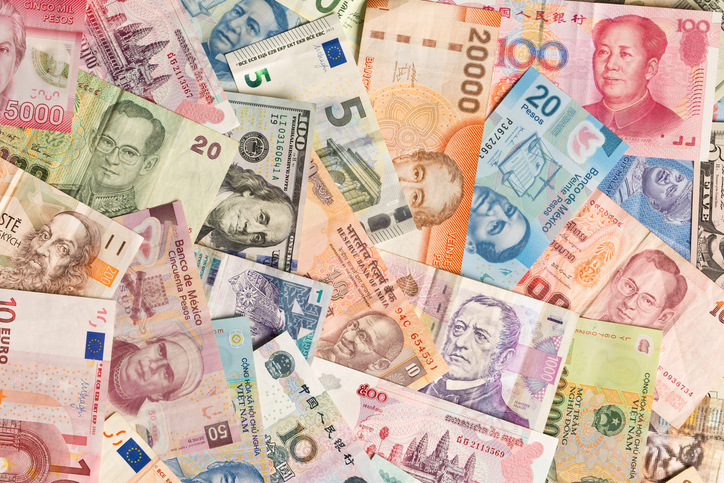Hot money refers to a type of short-term investment strategy where investors shift their funds quickly between financial markets to capitalize on interest rate changes. This practice often involves moving money across countries and currencies, seeking the highest returns in the shortest time. The term “hot” reflects the transient nature of these investments, as the funds rarely remain in one market for an extended period. While this strategy can yield quick gains, it also carries significant risks, including currency volatility and potential market instability.
If you’re looking to balance short-term opportunities with long-term financial security, a financial advisor can help create a diversified investment strategy tailored to your goals.
What Is Hot Money?
In typical use, hot money is a strategy. Investors move their money between countries based on local economic conditions. Mostly, this means taking advantage of changing interest rates. However, it can also mean taking advantage of changing currency values.
The typical hot money investor looks for the highest short-term interest rates they can find in a given economy. This means that hot money investing is a short-term strategy. Money moves frequently between countries. As a result, it virtually never stays in one place for more than one year. In fact, it typically moves much more frequently. This gives the strategy its name. The money is hot because it’s considered fast-moving and not necessarily reliable. It will flow out of an economy as easily as it flowed in.
Hot money investors can approach this strategy in several ways. Most will buy currency and keep their assets in a regional bank, taking advantage of the interest rates those banks will pay. Others will buy short-term assets such as the U.S. three month treasury bill. This is a short term investment product with a guaranteed return, making it suitable for this strategy, even if a less common approach.
Note that hot money refers only to incoming foreign capital. This does not refer to exports and imports.
Domestic Hot Money
Hot money can also refer to moving money within a domestic economy. In this context, investors are looking for short-term interest rates offered by domestic banks. Domestic hot money investing moves between banks, looking for the highest interest rate offered on short-term banking products. As with global hot money, investors tend to move their money frequently, always pursuing whichever institution offers the best rates.
Domestic hot money investors commonly seek out certificates of deposit.
This is a less common usage. By and large, when investors refer to hot money they are talking about the practice in the context of global finance.
Hot Money Examples

At time this was written, the U.S. three month Treasury bill paid a 1.52% interest rate. Also at time of writing the British three month LIBOR was 1.83%. Suppose, then, that we are hot money investors with our money currently in euros held in a Parisian bank. We have decided to exit the euro zone due to the current negative interest rate environment.
Here, we might convert our euros into British pounds and put that money in a U.K. bank seeking interest based on the 1.83% interest rate paid in the British market. We might buy certificates of deposit, debt instruments, or other forms of short-term banking-based investments.
Say, however, that the U.S. increases the three month Treasury bill rate to 1.9%. Then we might convert our pounds to U.S. dollars and put that money in a bank in the United States. That would generate interest based on the higher rates paid in that economy.
Domestic hot money trading works the same way. Say Consumer Bank offers 0.03% interest on all savings accounts. Their competitor, Neighborhood Bank, offers 0.02%. So you put your money into Consumer Bank. Two months later, Neighborhood Bank increases its savings account rate to 0.04%, leading you to move your money to them.
This would be domestic hot money in action, albeit on a very small scale.
Impact and Importance
Hot money can significantly impact a country’s exchange rates and capital flow.
When investors begin buying up currency in order to take advantage of a country’s interest rates, this will have two main effects. First, it will drive up the value of that currency. In our example above, the U.S. dollar will gain value against the British pound as we unload pounds in favor of the dollar. This will help the country’s import sector while hurting exports and tourism.
Second, hot money can bring short-term capital into a country. Again, from our example above, when we transfer our British pounds to U.S. dollars, we put those new dollars into a U.S. bank. This gives the bank capital that it can lend and invest with. This can be good or bad, as excess capitalization can cause inflation and asset overvaluation.
At the same time, by exiting a country we help to devalue its currency relative to others. When we sold our British pounds for U.S. dollars, the pound lost value against the dollar. This helps that country’s export sector by making it cheaper for foreign consumers and tourists to do business in Britain. However the weaker purchasing power also makes it more expensive for the British import sector. Thus, it weakens that segment of the economy.
Policymakers and economists take different views on the value of this. Some argue that this creates a natural market mechanism for economies to draw in capital and balance their currency. Others argue that this creates an unpredictable mechanic. As a result, an economy’s currency and capitalization can swing based on the whims of short term investors.
Hot Money and Politics
Hot money investors will sometimes chase political, rather than economic, trends. In some cases they will invest in an economy not necessarily because it offers the best interest rates but because it offers potential stability, or they will avoid an otherwise attractive economy because they’re concerned about political instability.
Limitations
The main limitation of hot money is capital controls. For hot money to work, a country needs to allow capital to move freely in and out of the economic zone. If laws make it difficult to keep money in the country or to transfer money out of it, hot money investors can’t work with the kind of speed that their strategy depends on.
In addition, an economy has to have the technical ability to move money in and out with ease and reliability. Say an economy doesn’t have the infrastructure or technology to conduct electronic transfers. For example, if it works on an unreliable power grid, then hot money investors can’t work. The same is true of economies that suffer from endemic corruption. If an investor has to worry about having their money siphoned off by local bankers or politicians, they cannot keep their money in a local account.
Bottom Line

Hot money is an investment strategy that involves moving capital between economies to take advantage of short-term interest rates. The term comes from how quickly and easily investors move their money. Hot money can significantly impact a country’s exchange rates and capital flow. Meanwhile, it can also create short-term capital for a country.
Investing Tips
- You don’t need to be a global financier to invest well. A financial advisor can help you find the right products to make sure that your money gets where you need it to, whether hot or cold. Finding a financial advisor doesn’t have to be hard. SmartAsset’s free tool matches you with up to three vetted financial advisors who serve your area, and you can have a free introductory call with your advisor matches to decide which one you feel is right for you. If you’re ready to find an advisor who can help you achieve your financial goals, get started now.
- Interest is both one of the most basic and also one of the most complex topics in finance, but if you have any kind of loan, it’s essential to understand it well. Here’s what you need to know to make interest rates a part of your financial planning.
Photo credit: ©iStock.com/imaginima, ©iStock.com/YinYang, ©iStock.com/primeimages
